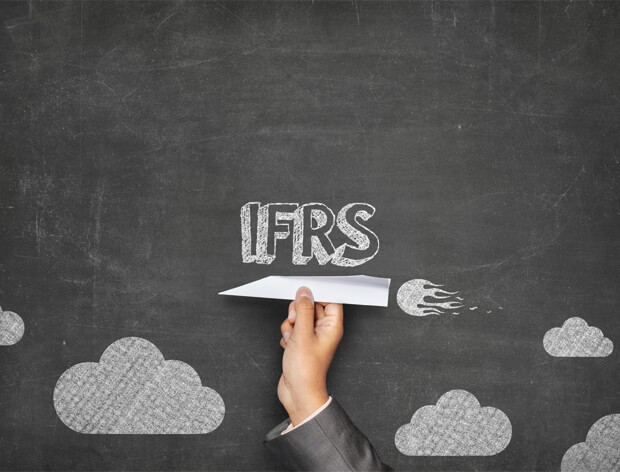The International Trade & Forfaiting Association (ITFA) has published a guide to accounting and legal issues under International Financial Reporting Standard (IFRS) 9 specifically aimed at the trade receivables and supply chain finance industry.
IFRS 9 specifies how an entity should classify and measure financial assets, financial liabilities, and some contracts to buy or sell non-financial items. It came into force at the start of 2018. ITFA’s publication, which it produced in partnership with a big four accounting firm and the association’s legal advisor, Sullivan & Worcester, is the first set of guidelines on the standards for the trade and supply chain finance industry.
“This is something that every trade and supply chain finance banker needs to know,” says Sean Edwards, chair of ITFA. “We are providing clarity for our members where precious little guidance exists.”
The paper considers the application of the accounting guidance under IFRS for the treatment of various credit risk mitigants (CRMs) issued to third parties by providers including insurers, financial institutions and other parties. It discusses in detail the various accounting considerations a recipient of a CRM product needs to consider when determining their accounting treatment for CRMs and, more specifically, the effect the use of CRMs has on the business model assessment.
The CRM products covered in the paper include:
- Non-payment insurance
- Unfunded sub-participations
- Funded sub-participations with transfer of an ownership interest
- Funded sub-participations without such a transfer
- Novation/assignment
“We’ve looked at all these products, which are essentially all about risk distribution in trade, and explained how they are treated under IFRS 9,” Edwards tells GTR.
“For banks, the big change under IFRS 9 has been that it’s now much clearer for them what provisions they have to create for expected losses – which is something that we touch on in the paper. But equally significant is how you de-recognise sales – what the balance sheet impact is if you’re using risk participations, insurance, and so forth. Achieving a legal ‘true sale’ can also be critical and we deal with that in the paper – it’s important to realise, however, that you can have de-recognition without a true sale in the strict legal sense.”
Because non-payment, or credit, insurance is a relatively new CRM, Edwards explains that it was critical to examine whether or not there was an impact under IFRS 9 when these products are used.
“There were no major surprises – but still, people need guidance on it,” he says.
The publication is the latest in the association’s suite of publications on how to originate, distribute and manage trade risk and debt in supply chain finance – an area which has become more complex as a result of recent changes in accounting and banking capital standards.
“One thing that’s clear from Basel and IFRS 9 is that the cleanest way to get de-recognition, which is what everyone wants, is to do a sale,” a source in the secondary market tells GTR. “Some people are saying that the days of outright sales are going to come back because that’s a much cleaner way of doing it. I don’t see much evidence of that at the moment – but certainly all the accounting and banking capital standards are pushing people towards doing that.”







